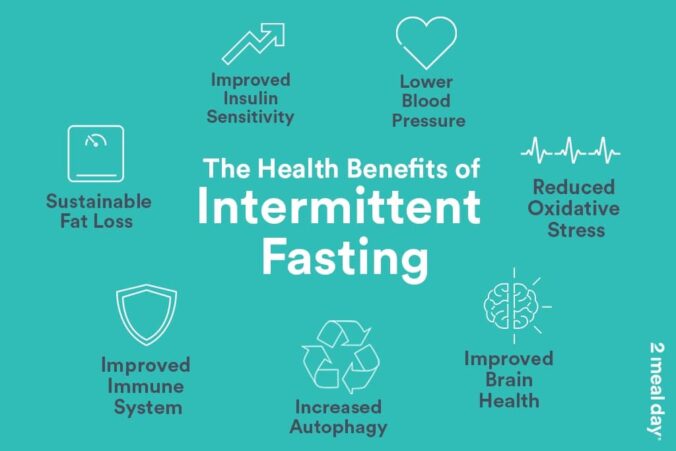| Science has discovered health benefits linked to whole-day, alternate-day, and time-restricted fasting, says Carolyn Williams, Ph.D., the registered dietitian that helped develop the book The Men’s Health Guide to Intermittent Fasting. Scientists speculate that the benefits of short-term fasts may come from the structured break they provide to around-the-clock eating. Check out the potential upsides of intermittent fasting: |
According to a report in Cell Metabolism, overweight people who ate during any 10-hour timeframe (and not the other 14) saw a reduction in waist circumference and visceral abdominal fat after 12 weeks. The study referenced above also demonstrated the potential of intermittent fasting to reduce risk of metabolic diseases, such as type 2 diabetes and heart disease. In another study, participants who practiced 16:8 intermittent fasting without calorie counting significantly reduced their systolic blood pressure compared to a control group after 12 weeks. Inflammation is your body’s natural way of fighting off infection, illness, and injury. But there’s another type of inflammation, a chronic inflammation that can silently trigger heart disease and diabetes.Several studies have shown that intermittent fasting may induce an anti-inflammatory effect that reduces risk of those metabolic diseases. Studies suggest that intermittent fasting may be much easier to maintain than extreme calorie cutting, and may boost lifespan, too. In one study comparing rats who were given unrestricted access to food to rats who were fed every other day, the rats who fasted lived 83 percent longer than those who gorged themselves. |
